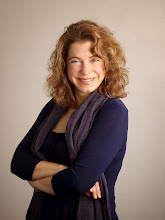Guest Blog: Endless Research by Susanne Dunlap

If there's one thing I dread, it's that question people like to ask about writing historical novels, "Do readers contact you telling you that some fact is wrong in your books?"
When asked, I tend to dismiss it by saying, "Readers understand that we're writing fiction. But obvious anachronisms are irritating, and a scrupulous writer of historical fiction does her utmost to avoid them."
All well and good. But when you're writing about the way life was for women-- especially when they're not famous women about whom lots has been written-- being even in the ballpark of truthful and factual can be especially challenging. As Mary said in her introduction to this forum, women are not well documented in history. Sure, there are guidelines about costume, and the wonderful series A History of Private Life which sheds much-needed light on the domestic world, the primary province of women. There is also the wonderful series A History of Women, edited by Duby and Perrot.
Yet historians have really only scratched the surface of women's history. The farther back you go in time, the harder it is. In recent years, feminist history has taken a new look at much of this area of the past that has been deemed by the historical canon to be of little account. The "Great Men" approach to history didn't leave room for much besides the odd anecdote about family life.
That historical everyday, that milieu that I wonder about, trying to put myself back in time to feel what it must have been like to be a woman then, is utterly beguiling to me. The great men-- even the great women-- don't interest me nearly as much. So I'm always on the lookout for new sources on the periods in which I work that might flesh out that hazy view.
Unfortunately, I live in fear that only after a book is published I'll discover some perfect source that would have given me valuable material for my setting, and that exposes what I've done as largely patched together from hints and inferences. Something like that happened to me with my first book. A huge, encyclopedic tome about the world of Marc-Antoine Charpentier was self-published by a scholar whose Web site I knew of and had visited. It would have been useful to have that source when I could still do some rewriting.
But, but. I read on, and hope that even if I don't get it completely right, I'll create a convincing enough picture of female life to elucidate it for my readers. And there's always the next book. . .
Susanne Dunlap
www.emiliesvoice.com


3 Comments:
Great post, Susanne.
I find it sort of thrilling to look at a Great Event and imagine what it was like for the people on the edges. And you're right, women are usually assumed to have been apart from the major events of history, and thus somehow not connected to it at all.
(And congratulations on the blog, Mary. It looks wonderful.)
Just the editor in me: The "wonderful series" of Duby and Perrot was an afterthought, and I apologize for the repetition!
I found this very interesting as I am constantly facing the same research dilemmas. I'm writing about the women of Alexander the Great's world (at least, I've given them their voices in my multiple p.o.v. novel "Shadow of the Lion". The historians have not written much about them, and certainly not given them the recognition they should have had. I'm finding it fascinating writing in their points of view. They were strong women. It's been a thrill getting to know them!
Post a Comment
<< Home